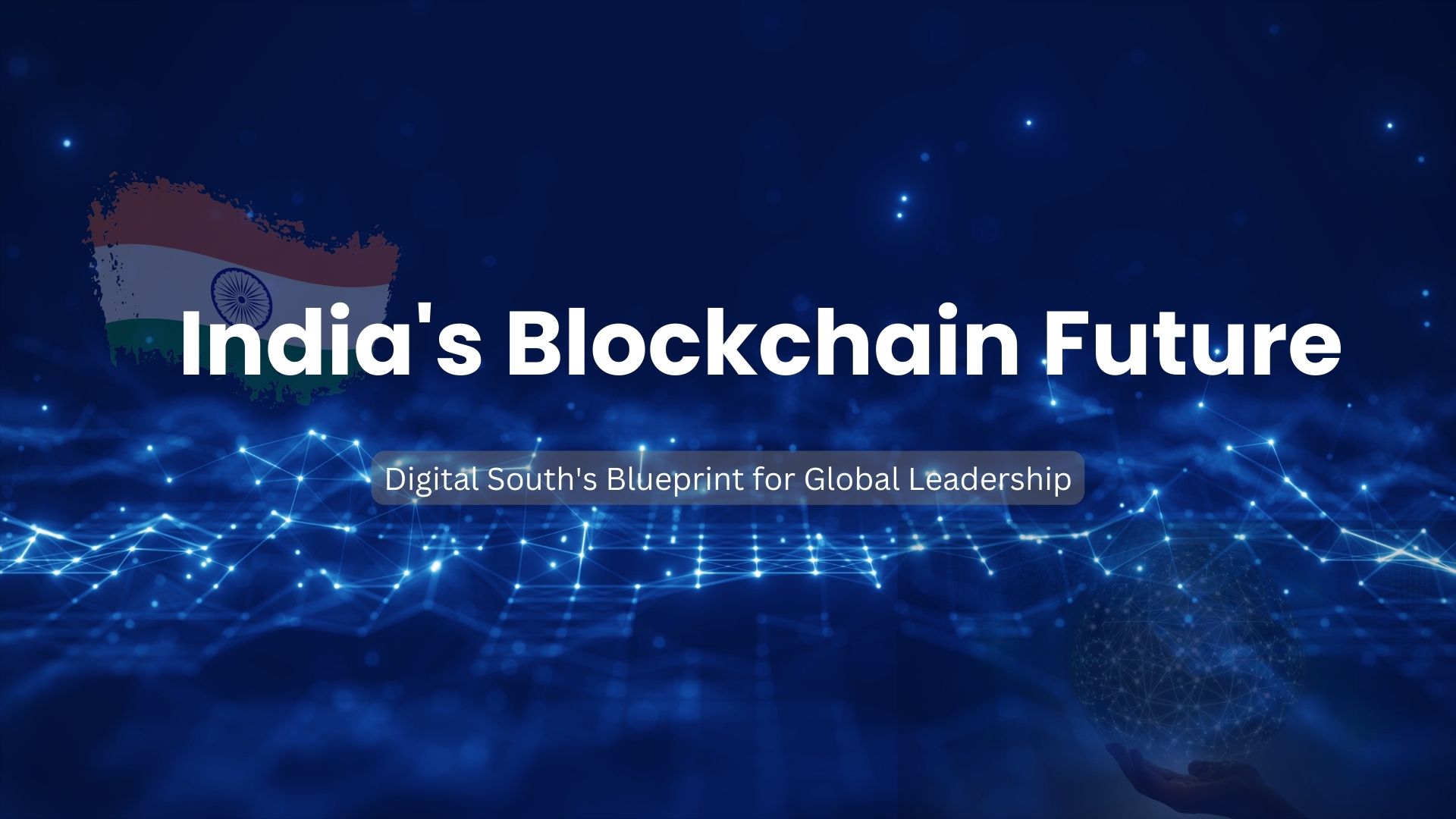In a landmark move toward defining India’s position in the global blockchain landscape, Sudhakar Lakshmanaraja, a mentor for AI, Blockchain, and FinTech startups under the Tamil Nadu government, has presented a comprehensive roadmap to Smt. Nirmala Sitharaman, Honorable Finance Minister of India. This proposal outlines key strategies to harness India’s vast potential in the blockchain and cryptocurrency ecosystem, aiming to transform the nation into a global blockchain hub by 2047.
The Global Blockchain Opportunity
The global blockchain market is poised for exponential growth, and India, with its unparalleled talent pool and technological capabilities, stands uniquely positioned to lead this revolution. However, achieving this ambitious vision demands proactive policy interventions and strategic initiatives. Drawing from global examples like Singapore, the UAE, and Switzerland—countries that have implemented progressive regulations to become blockchain leaders—Digital South has identified critical areas for action.
Key Recommendations for Policy Reform
1. Reduction in Cryptocurrency Taxation
The 30% tax on cryptocurrency gains and 1% TDS on every crypto transaction are stifling innovation and forcing businesses to relocate to crypto-friendly jurisdictions like Singapore and Dubai.
Reduce the tax rate on cryptocurrency gains to 10-15% and abolish the 1% TDS. This would encourage compliance, attract foreign investors, and foster a robust market ecosystem.
2. Establishment of a Dedicated Web3 Office
To ensure policy coherence and foster growth, a dedicated office for Web3, Blockchain, and Digital Assets should be established under the Ministry of Finance.
Responsibilities:
Draft progressive regulations for blockchain and cryptocurrency.
Collaborate with stakeholders to promote R&D in blockchain technology.
Attract Foreign Direct Investment (FDI) and nurture startups in this sector.
This office would serve as a vital bridge between policymakers, industry innovators, and international investors.
3. Creation of Special Economic Zones (SEZs) for Blockchain R&D
Designate specific SEZs with tax incentives and streamlined regulatory processes to attract global companies to establish blockchain R&D centers in India.
These SEZs could attract billions in FDI and position India as a global hub for blockchain innovation.
4. Incentives for Blockchain Startups and Developers
Introduce grants, subsidies, and funding programs for blockchain startups working on projects aligned with national priorities like financial inclusion, supply chain transparency, and secure digital identities.
Launch targeted skill development programs to create a talent pool of 500,000 blockchain developers by 2030. Retain top talent within India and curb the brain drain to other nations.
5. Public-Private Partnerships (PPP)
Foster partnerships between the government and private enterprises to develop scalable blockchain-based solutions for public services such as land records, healthcare, and education.
Enhanced transparency, efficiency, and trust in government processes.The Transformative Potential of Blockchain
By implementing these recommendations, India could:
- Attract billions of dollars in FDI.
- Generate millions of jobs, contributing to the “Viksit Bharat 2047” vision.
- Retain top talent, reducing the brain drain to blockchain-friendly countries.
- Foster cutting-edge innovation and position itself as a global leader in the Web3 revolution.
- Align with the Government’s ‘Digital India’ and ‘Atmanirbhar Bharat’ initiatives.
Digital South’s Bold Vision
Digital South, a pioneering organization aiming to educate 100 million Indians on blockchain fundamentals and create 500 highly skilled developers per district by 2028, has emphasized the need for immediate action. In a recent RTI revelation, the Reserve Bank of India (RBI) clarified that cryptocurrencies or Virtual Digital Assets (VDAs) do not fall under its regulatory purview, highlighting a glaring regulatory gap. To address this, Digital South has urged the Finance Ministry to establish a dedicated Web3 and Blockchain Office to fill this void and ensure India’s leadership in this transformative sector.
Why India Needs Progressive Policies
Countries like El Salvador, Estonia, Hong Kong, and the UAE have reaped the benefits of forward-looking blockchain policies, attracting investments and talent. With its demographic advantage and technological expertise, India can surpass these nations by fostering innovation, providing regulatory clarity, and incentivizing blockchain entrepreneurship.
A Call to Action
Digital South’s proposal comes at a critical juncture in India’s Web3 journey. The organization’s visionary approach aligns with the broader goals of creating a self-reliant and digitally empowered nation. By adopting these measures, India can emerge as a global blockchain powerhouse, achieving a $6 trillion Web3 economy by 2047.
As we march toward 2047, the establishment of a dedicated Web3 Office could be the cornerstone of India’s emergence as the world’s blockchain capital. It’s time for India to embrace this transformative opportunity and lead the blockchain revolution.
For more details, visit www.digitalsouth.co.in.




